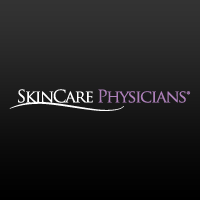- Home
- Blog
- Acne
- How to keep acne at bay during the school year: A dermatologist’s advice
It’s that time of year again, when students go back to school. Unfortunately, this season often brings with it acne breakouts on middle and high school students, pimples and blackheads that come with books and laptops! Acne is a chronic skin condition that affects the face, neck, chest and back. The sebaceous glands in these areas go into overdrive, often stimulated by the hormonal changes of puberty. Acne cannot be cured, but there are many treatments available. It can be discouraging for students who may have had their acne under excellent control during the summer months to suddenly find their acne starting to flare up as the academic year begins. Read on to discover the 4 S’s of Dr. Robin Travers on school-related acne: what causes it and how to best treat it.
STRESS
Without a doubt, the academic year brings with it tremendous stress for high school and college students. School workload, peer competition, frequent tests and other assessments, and social pressures contribute to student stress. This type of stress is widely believed to be a trigger for acne. In fact, 2003 study showed that acne severity worsened during midterms and finals among Stanford students. Neuropeptides and stress hormones such as cortisol may play a role in increasing inflammation around the sebaceous hair follicles, exacerbating acne that may already be present. Of course, reducing stress in students is a challenge. Improving a student’s support system, limiting social media, exercising, and paying attention to diet and hydration can all be helpful. Ensuring students have an outlet for stressful activities is also essential: journaling, yoga, non-competitive sports and extracurricular activities can all help reduce stress.
SLEEP
Lack of sleep and sleep disturbance are common among high school and college students: late-night study sessions, partying, and stress can all contribute to insomnia. Several studies have shown that poor sleep quality contributes to the worsening of acne that can be seen in students. Paying close attention to “sleep health” can be difficult for students with overburdened schedules: many cut back on sleep hours to make room for other activities. Some suggestions:
- Set up your sleep environment for success: use white noise machines to reduce the impact of sounds (especially worthwhile in a dorm!) and minimize light distractions in bed. That means putting away the phone and laptop!
- Try to wake up and go to bed at the same time every day. Keeping a regular schedule like this has been shown to improve sleep quality.
- Try to keep the room as cool as possible to facilitate sleep.
- Exercise regularly, but not right before bed.
- Avoid caffeinated drinks after noon.
- Avoid alcohol or nicotine before bed.
SPORT
With the start of the academic year comes the start of many sports seasons! Sweat can contribute to acne, especially when combined with the use of sports equipment. Acne can often be aggravated by chin straps, helmets, and playing football or hockey. Solutions for athletes include:
- Keep equipment as clean as possible.
- Try to wash immediately after a practice or game to wash the sweat off the body.
- If washing or showering immediately after exercise is not possible, using a cleansing wipe to remove residual dirt and sweat may be helpful. Keeping products like Neutrogena Rapid Clear Treatment Pads in your gym bag or locker ensures easy access when showering is not an option.
SIMPLIFY
Many acne patients have a complex treatment regimen that helps them keep their acne under control. With the start of the academic year, crunch time can make it difficult to follow such a schedule. Work with your dermatologist to identify ways to improve your routine so it can be maintained even during the hectic school year.
If your acne continues to worsen during the academic year despite these steps, the dermatologists at SkinCare Physicians are available to help you manage your regimen. Call our office at 617 731-1600 to schedule an appointment.
you might like it too
Can diet affect acne?
Teenage acne: Myths, facts and solutions
Topical Acne Treatments: What’s New?
